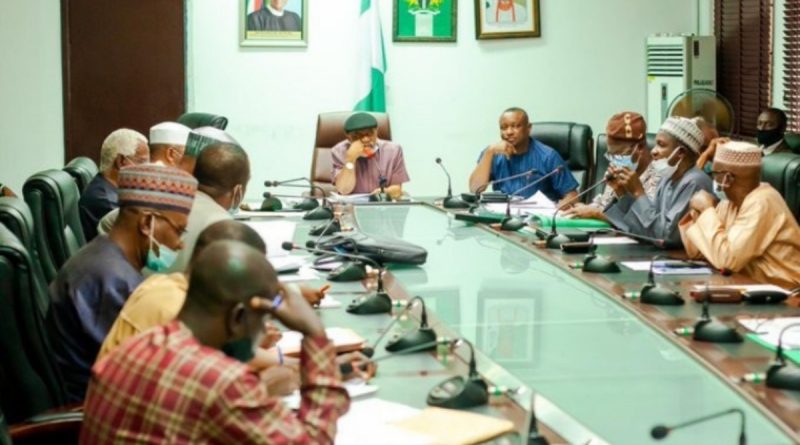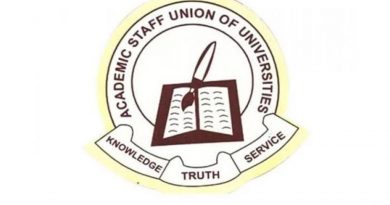Ending perennial ASUU strikes requires new funding approach
NIGERIAN university students eager for education remain on the receiving end of bad governance and the absence of those who ought to instil in them the requisite knowledge to thrive.
Having lost over a semester to the COVID-19 pandemic, which upended every aspect of human life, the pains of Nigerian students attending public universities were exacerbated in October when they could not resume classes after the Federal Government gave the approval for all schools to reopen. While their counterparts in private universities have returned to normal academic activities, students in public universities are still hoping against hope.
It is unfortunate that the Academic Staff Union of Universities and the Federal Government are still squabbling over the applicability of the Integrated Payroll and Personnel Information System to the university system and other long-standing contentious issues in the management of Nigeria’s public universities.
READ ALSO: ASUU spent 1,500 days on strike in 21 years
ASUU said it was a needless crisis in the first place. “It happened because the government has consistently failed to faithfully implement the agreements it freely signed with the union.” Since the Fourth Republic commenced in 1999, ASUU has spent at least 1,500 days on strike to the detriment of innocent students. This implies that more than four years that could have been spent on quality academic research and teaching have been frittered away.
This is shameful for a country whose public universities once attracted foreign scholars and students from all over the world. With such incessant strikes that randomly alter the academic calendar, it is not surprising that Nigeria’s tertiary institutions are no longer ranked highly.
At the centre of the current strike is the IPPIS. The President, Major General Muhammadu Buhari (retd.), had ordered that all federal workers be captured on the IPPIS for receiving salaries to check the incidence of “ghost workers” on the payroll. The government insisted that all federal workers not captured on the platform would not be paid salaries, but curiously, it exempted those working in revenue generating agencies.
This unexplained exemption gave ASUU the impetus to reject the IPPIS in its entirety and opt for its own University Transparency Accountability Solution. This ego battle between both parties has stymied the educational progression of millions of innocent students.
At the heart of the higher education crisis is inadequate funding. Government funding plays an essential role in higher education access and operations in most countries. In the United States, federal and state funding, together, continue to make up a substantial share of public college and university budgets.
According to PEW, federal spending on major higher education programmes totalled $74.8 billion, state investments amounted to $87.1 billion, and local funding was $10.5 billion. The three major federal funding streams—Pell Grants, research funding, and veterans’ benefits—are distributed differently across institution types, which are broken out by “public,” “private non-profit,” and “private for-profit.”
But while ASUU’s penchant for strikes is condemnable, the government cannot absolve itself of blame. The budgets for education at the federal and state levels have been extremely low. In the 2021 federal budget proposal, about N742.5 billion is earmarked for education out of the N13.08 trillion budget.
The Education 2030 Framework for Action proposed two benchmarks as ‘crucial reference points’: allocate at least four per cent to six per cent of GDP to education, and/or allocate at least 15 per cent to 20 per cent of public expenditure to education. All the tiers of government have consistently fallen far short of meeting these targets.
Consequently, students are forced to take lectures in overcrowded classes, use ill-equipped laboratories and reside in dilapidated hostels. The myriad problems associated with studying in public universities have forced many Nigerians to opt for foreign education, a development that costs citizens over N1.5 trillion yearly. Even unaccredited universities in Benin Republic, Niger and Ghana have now become choice destinations for Nigerian students who are desperate for uninterrupted education.
Successive administrations have continually failed to honour agreements with ASUU, which has often led to strikes. The Federal Government cannot continue to blame previous administrations since government is a continuum. It must immediately honour all promises, release all necessary funds and ensure that it is guided before making future commitments.
The Federal Government cannot keep establishing universities when it has failed to maintain the existing ones. According to ASUU, the 12 universities created during the administration of President Goodluck Jonathan are struggling due to paucity of funds. Despite this challenge, there are eight bills being debated at the National Assembly for the creation of more universities, including the Aerospace and Aeronautics University in Ondo State. This is proliferation without growth.
Rather than continue to enter into agreements with ASUU, which cannot be met due to financial constraints, the Federal Government should take another look at how its universities are funded. It is absolutely impossible for the government alone to pick the bill of running universities.
In the US, revenue from federal and state sources made up 34 per cent of total revenue at public colleges and universities in 2017, with other funding coming from tuition and fees, private gifts, self-supporting operations, and other sources. Making loans available to students can be part of it. The US federal government is the nation’s largest student lender, issuing $94 billion in loans in 2018.
Again, the Federal Government should promote institutional autonomy and stronger self-regulation by reducing its level of intrusive regulation and moving to a more supervisory role. Increased university autonomy in conjunction with accountability measures will exponentially impact on the quality of university education in the country.
At the heart of a great university lies autonomy. Chris Patten, the last British governor of Hong Kong and later, Chancellor, University of Oxford, once said, “Universities should be bastions of freedom in any society. They should be free from government interference in their primary purposes of research and teaching; and they should control their own academic governance. I do not believe it is possible for a university to become or remain a world-class institution if these conditions do not exist.”
In the short term, however, ASUU must reduce its frequency of strikes and explore other means of airing grievances like encouraging its members to go to court. Nigerian lecturers must return to their calling by engaging in academic research that will provide solutions to existential problems like COVID-19. It is time to put an end to incessant strikes.
Punch Editorial, 11/12/2020
For Advert Placement, Sponsorship, support, Article submission, suggestion, etc, Contact us: info@theabusites.com, +2349015751816 (WhatsApp)








